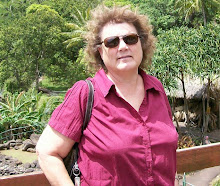
Recently we had a Relief Society weeknight meeting that focused on becoming financial independent. Brother Richie spoke, and he is here at BYUH on a mission in the School of Business after many church callings such as MTC president in Africa, a mission president, etc. etc. He is also one of the wealthier members of the church and personally finances, along with a few other members, the prizes for some of BYUH contests like the one Tim had in the School of Computing, where they gave students $1,000 worth of cash. These contests were held in other departments such as English also. Anyway, his remarks were very interesting and he claimed he began his knowledge of money handling by studying the little book “The Richest Man in Babylon” by George Clason. I was interested enough in his talk to purchase this book on my Kindle device and have read it now. In this blog I will pass on some of the concepts I gleaned about becoming financially free. The book is a story occurring in Babylonian times and quite interesting as well as short so I recommend it.
First principle: “A part of all I earn is mine to keep”. As soon as you earn any money, (after paying tithing) save at least 10%. Do not touch this savings for anything.
Second principle: Everything you save is a slave to work for you. The child of what it earns is also a slave to you and should likewise be put to work in a secure investment situation as well as the grandchild, etc. and so on.
Third principle: Do not go to a brick layer for advice about jewels. Go to an expert in the field of whatever you wish to invest in. Don’t assume that you yourself are an expert in the investment field either (unless of course you are).
Fourth Principle: Control expenses. Expenses always grow to equal your income unless you budget and plan. Don’t confuse needs and wants. A budget helps you realize your most cherished desires by defending against casual wishes.
Fifth principle: Make your home a profitable investment. Own your home, borrowing if necessary as it is better to regularly pay a mortgage than rent. Improve your home with gardens and flowers, etc. (not out of the 1/10 you save, but the other 8%)
Sixth principle: Guard your treasure against loss. Investments need to be secure, loans should have collateral equal to or above the amount of loan- either item, land, signature of services, etc. If there is no property, then get a co-signer to vouch for your person that the debt will be repaid. The principal should be safe, reclaimable if necessary, and where you can collect a fair rental. Gold flees from the person who tries to get impossible earnings or follows alluring tricksters or their own romantic and inexperienced desires
Seventh principle: Insure a future income for your family in case you get old or die. Regularly put a little away and invest it for reasonable growth, such as life insurance.
If you have debts then make a plan to repay. Still pay tithing, save at least 10%, then live on six percent and divide the remaining 2% between all of your creditors until slowly you have repaid all your debts. Debts are your enemies to be fought against but creditors are friends who trusted you to loan you the money, treat them well and with respect.
Remember the soul of a free man sees life as a series of problems and goes about finding solutions to them, while the soul of a slave whines “What can I do who am but a slave?”
The story of course teaches these principles by things that happen in the lives of the characters, but I was trying to boil it down a bit although mine is undoubtedly less interesting. Of course being from Babylon the story doesn’t say anything about tithing but I thought that an important addition.








